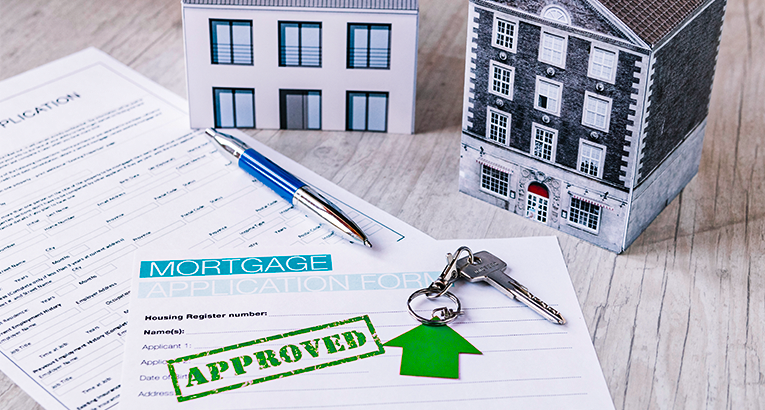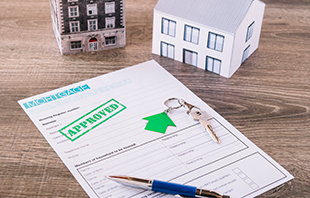Have you ever realized the importance of property document verification? In view of growing discrepancies in the real estate sector, it has become a must for those buying a property, whether land or building. It protects you from all the forgeries involved in the property transaction. It entails an investigation of the property's legality on the grounds of ownership, court cases, and various other documents. A legal professional or lawyer handling real estate transactions can help you in the property verification process.
What Documents Should Be Checked For Property Document Verification?
Property document verification is a tedious process, and the documents you need to check include the following:
• Title Deed:
Verifying the title deed is the first step in property document verification. It establishes legal title-property ownership. This way, you can rest assured that the property you will buy is free from legal disputes and maneuvers. Also, ensure that the property is worth in the market before you buy it.
• Legal Title Search Report:
The legal title search report familiarizes you with property’s history, including the legitimate owner of the property, and the various stages of sale it has been through before it came to you. In addition, it helps you know about the present status of the property—whether it has encumbrances, is mortgaged or is free from any legal claims, whatsoever.
• Sale Deed:
This is one of the most critical documents for property document verification. It provides party and property details, including the property's location, proof of payment, and registration details. You must register the sale deed at the sub-registrar's office within four months from the execution date; otherwise, it will become invalid. It will be essential if you plan to sell your property.
• RERA (Real Estate Regulatory Authority):
Before buying the property, confirm whether or not the property is registered with the Real Estate Regulatory Authority, which regulates and governs the city's real estate sector. The RERA registration certificate lets you know whether the project is legitimate. Bear in mind that this registration is mandatory for projects on the land to be developed over 500 square meters, and the project has eight or more flats.
• Building Approval Plan:
The municipality or the local authority issues this document for buildings that comply with the approved norms. In addition, this type of property document verification verifies the property's legality and compliance with regulations.
• Khata Certificate:
This certificate establishes the property owner's identity for tax payments and is vital in getting water and electricity connections. It is a revenue document that allows you to check details related to the property, such as area, location size, etc. This property document verification is necessary wherever it is applicable.
• Completion Certificate:
Once the property's construction process is completed, the local development authority inspects it. This completion certificate ensures that the property adheres to all the approved plans, building codes, regulatory requirements, and safety standards. It is mandatory to get occupancy certificates and utility connections.
• Occupancy Certificate:
When the home or building is constructed, the municipal authority issues the occupancy certificate. This property document verification ensures the property is ready for inhabitants' occupancy. In addition, it helps you get a home loan for rentals and commercial purposes.
• No Objection Certificate:
Developers must get NOCs from various authorities and departments while completing their projects, such as water and electricity boards, fire departments, pollution control boards, and others, to confirm that their projects comply with all legal norms. As a home buyer, you must obtain it and keep it safe for future reference.
• Allotment Letter:
This letter is issued by the builder or developer. It includes property details, the amount paid by the buyer, the payment plan, and some extra charges. It confirms the allocation of the property to a particular buyer. When you invest in purchasing the property under construction, it will be issued to you.
• Possession Letter:
This letter is issued by the developer. It gives details about the date when the buyer can claim the ownership and shift to the building or flat. Bear in mind that this is not proof for legal title-property. But it shows the date when the buyer can possess the dream home and move into it.
Whether inexperienced or experienced in property investment, navigating the realty market can be adventurous. Understanding the documents mentioned above can make the transaction process safer and more secure. The property document verification protects you from legal hurdles and gives you complete peace of mind.
How to Opt for Property Document Verification Online?
In today's digital era, property document verification online has become easier and more accessible for internet-savvy people. As a result, you can check records online without seeking help from lawyers or legal professionals. Various steps involved in this type of verification include the following:
• Visiting the Government Portal:
First and foremost, you need to go through the government portal of your city. You will find an online platform applicable to your location— the e-Dharti Geo Portal for Delhi.
• Searching for Property Records:
Search for your property records. For this, go to the website section to find your property records. Here, fill in all the details related to your property, including your district, zone, and property ID.
• Checking Your Property Details:
Once you have filled in all the required details, you can access your property details—the property's address, the value of your property in the market, its square footage, encumbrance, liens, and other related details.
• Verifying Property Ownership:
Ensure that the seller's name matches the name on the website listing of the property owner. This property document verification ensures that the seller is the owner of the property on legal grounds.
• Verifying for Encumbrances:
Before buying the property, ensure that the property does not have any mortgages or liens. It could be difficult for you to buy the property if it has liens against it.
• Saving and Downloading:
Finally, download a copy of the property records if the website allows it. This ensures comprehensive property document verification.
What are the Benefits of Property Document Verification?
The benefits you can get from property document verification include the following:
• Finally, if the property is legally checked, you can avoid wrong information when availing of loans or mortgages.
• The property's legal authentication makes it easier to obtain loans against it.
• The legal verification of the property assures that the seller has a legal title-property and may execute the transaction.
• You can keep away from fraudulent activities or papers if the seller has verified the legality of the property.
• It has become common to see the property being transferred to the same vendor, who forges the documents to trick their customers. But, you can prevent it with legal verification of the property and seek legal guidance from lawyers.
• Finally, if the property is legally checked, you can avoid wrong information when availing of loans or mortgages.
Conclusion
The property document verification holds great importance in the property transaction. By embarking on it, you can rest assured that the property is free from any encumbrances, liens, or legal hurdles, and you are buying it from a legitimate and authentic seller.
FAQs:
What Documents Do I Need to Have the Ownership of the Property?
Ans:
The documents you need to prove the ownership of the property include the following:
• Title Deed:
This is the most essential document through which you can prove the ownership of the property.
• Sale Deed:
This document records the sale and transfer of the property.
• Encumbrance Certificate:
This certificate proves the property has no financial or legal liabilities.
• Property Tax Receipts:
These receipts prove that the property owner has been paying property taxes since they owned it.
• Mutation Document:
This document shows the property transfer in the municipal records.
• Possession Certificate:
This certificate indicates the possession of the property. The developer issues it.
How can property document verification help me confirm the property history?
Property document verification is a long process that involves examining past ownership records, transfers, and transactions to confirm the property's history and spot any legal discrepancies or issues that may affect legal title search records or the property’s value in the market.
.jpg)


.png)
